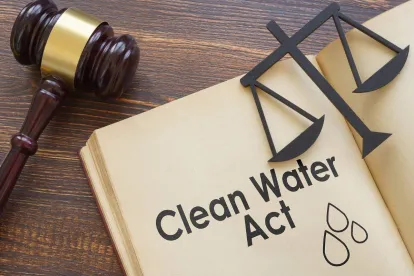According to a complaint filed by the United States Environmental Protection Agency and the Georgia Department of Natural Resources, the DeKalb County Wastewater Treatment Facility discharged untreated wastewater into the South River in violation of the Clean Water Act. The Federal and State Governments' complaint resulted in a judicially approved consent decree between the Governments and the County requiring the County to make six figure payments to both the Federal and State Governments and to do many things to prevent such violations of the Clean Water Act in the future.
There's no suggestion that the County has failed to comply with the terms of the Consent Decree. Many observers, including three Judges of the Eleventh Circuit Court of Appeals, think that should have been the end of the matter. But, as Sam Hess of Inside EPA reports, an NGO which had intervened in EPA's and Georgia DNR's original lawsuit, and objected to the Governments' settlement of that litigation, insists it should be able to bring a new action against the County and has asked the other Judges of the Eleventh Circuit to reverse their colleagues to that end.
As Ms. Hess reports, several of the Federal Courts of Appeals are all over the map regarding what constitutes a "diligent prosecution" foreclosing subsequent citizen suits that would otherwise be authorized by the Clean Water Act. I've written about my concerns about the effects of the First Circuit's holding that a settlement of Clean Water Act claims by the Government does not preclude a subsequent citizen suit for injunctive relief (see https://insights.mintz.com/post/102hnqb/this-1st-circuit-clean-water-act-decision-makes-complete-sense-except-in-the-real). However the facts of the case decided by the First Circuit are easily distinguishable from the facts of the Eleventh Circuit case. So are the facts of the Fourth Circuit case the NGO references.
I expect that the Eleventh Circuit's panel's ruling against the NGO in Georgia will be sustained. But that doesn't mean that a fresh Congressional look at the citizen suit provision of the Clean Water Act isn't in order as part of a comprehensive refreshing of the Act, including bringing its reach into the 21st century. Second-guessing of judicially approved consent decrees by NGOs and District Court Judges is not a good idea.
Plaintiffs are asking a federal appellate court to reconsider its dismissal of their citizen suit that alleges a Clean Water Act (CWA) consent decree between regulators and a Georgia county does not meet the law’s “diligent prosecution” bar, amid uncertainty on the issue after the Supreme Court let stand another case that raised the bar for regulators seeking to preempt such suits on those grounds. South River Watershed Alliance filed a June 21 petition for rehearing en banc to the U.S. Appeals Court for the 11th Circuit following a three-judge panel’s rejection of the group’s suit, South River Watershed Alliance, et al., v. DeKalb County, Georgia, on the basis that it is barred because of “diligent prosecution” by EPA and the Georgia Department of Natural Resources (GDNR).




 />i
/>i
